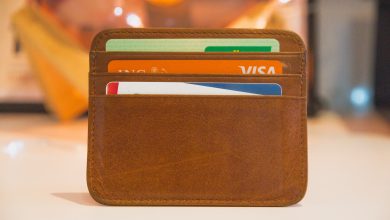What Is a CPN, or Credit Privacy Number?

A CPN is a nine-digit number that bills itself as a replacement for your social security number. Credit privacy numbers are also sometimes referred to as SCNs, or secondary credit numbers. However, while using a CPN may appear to have its advantages, you should never use one under any circumstances.
The main reason for not using a CPN is simple: it is against the law to use a different number in place of your social security number, and you could be charged with fraud.
Why Do People Want to Use a CPN?
There are a few different reasons why a CPN may appear to be an appealing option:
- Protect Against Identity Theft – The less you use your social security number online, the less chance there is of someone getting their hands on it. Once an identity thief has your social security number, they can do many different harmful activities. A person can steal your identity and apply for lines of credit in your name, file a tax return in your name, or steal employment and government benefits. Using a credit privacy number in place of a social security number may seem to be a sound strategy for protecting against these types of risks.
- Keep Your Privacy – Your social security number reveals many different personal details about you, such as where you live, the things you purchase, and medical and tax history. Some people may rather not have that information be trackable and would use a CPN to stay as private as possible. This is the reason why some elected government officials and celebrities have been rumored to use credit privacy numbers.
- Bad Credit – Some companies may try and trick you into believing you can use a CPN if you have bad credit to receive a clean slate. Not only will you not receive a clean slate, as creditors can track down your debt with your name, address, and other details, but you also may be charged with fraud. Fraud charges, in this case, can stem from two separate crimes you would be committing by using a different number in place of your SSN. Not only is misrepresenting your SSN a federal crime, but so is lying on a credit application.

How to Protect Against CPN Scams
Steer clear of any company or individual who tells you the following:
- The company says it is legal to use a CPN in place of your SSN – It’s not. This company is lying to you and should be both avoided and reported to authorities.
- The company asks for upfront payment to buy a CPN before working for you – Scammers often ask for money in advance and then leave you high and dry with nothing to show for it.
- You are told that your old credit will never be connected to you again – This is another lie, as creditors use more than just your SSN to find your old accounts.
- You are promised that you can receive new credit with your CPN – No one can guarantee that a creditor will approve your application.

Alternatives to Credit Privacy Numbers
If you have bad credit, you can always repair it. No matter how bad your credit might be, if you commit to taking the steps necessary to improve it, you can. Repairing your credit may take a couple of years, but it is possible to improve your score drastically if you follow the right guidelines.
If it is your privacy you are concerned with, here are some suggestions for what you can do to protect yourself:
- Leave your SSN blank on a credit application – This is your right, but it is also the right of the creditor to reject your application. When dealing with the government, though, you must use your SSN.
- Don’t use public Wi-Fi – Using public Wi-Fi is one of the easiest ways for a hacker to get into your computer and steal your information or track your activities. If possible, use a hotspot on your phone in place of public Wi-Fi.
- Use a VPN – Another option to protect your internet connection is to use a VPN. A VPN is a virtual private network that hides your IP address by routing it through a different location.
- Always be skeptical of someone asking for personal information unsolicited – If someone contacts you looking for information that you did not solicit, hang up the phone, block the number, or report the email as spam.
- Monitor your credit – You can monitor your credit for free with many different applications and can use this to detect suspicious activity.
- Use an identity protection service – If you want to take it a step further, you can sign up for an identity-theft protection service, which can guard your information and help you regain your identity if it gets stolen.

Bottom Line on Credit Privacy Numbers
Many times, crimes and poor decision-making can stem from feeling like there is no other option. If you have bad credit and desperately need a loan, you may be tempted to use a credit privacy number, just this one time, to have access to the money you need. But you must resist this temptation. You can very easily be caught for this type of crime and charged with fraud, which is sometimes punished as a felony.
There may be other people that have good credit but are afraid to type in their social security number online or on a physical application. A CPN may appear to be an easy way to lessen the risk of your social security number being revealed to identity thieves. The risk of your SSN being hacked into and used for fraudulent activities is sadly a stark reality. But the last thing you want is to be charged for fraud in an attempt to protect yourself.
Many times, the CPN number you are purchasing is someone else’s stolen social security number. By using this number, you are now the one who can be charged with committing identity theft.
The bottom line on credit privacy numbers is that, any time you see them referenced or catch any hint of using a number in place of your SSN, you should run the other way.



